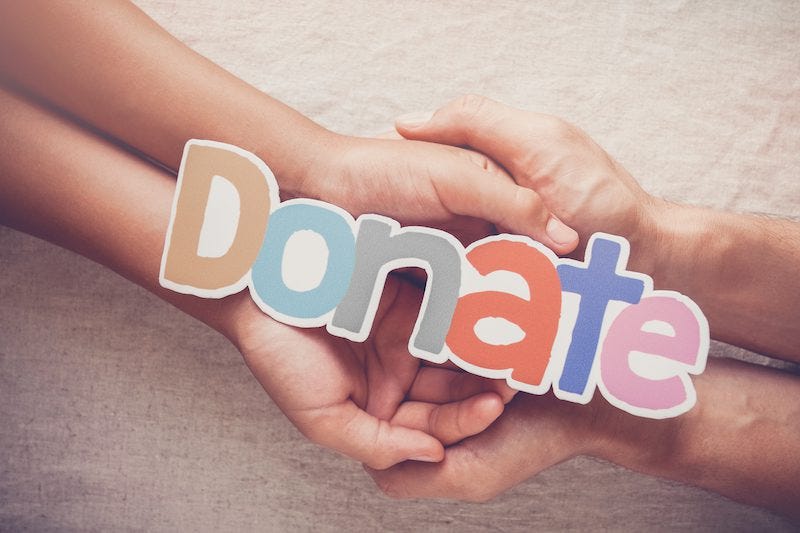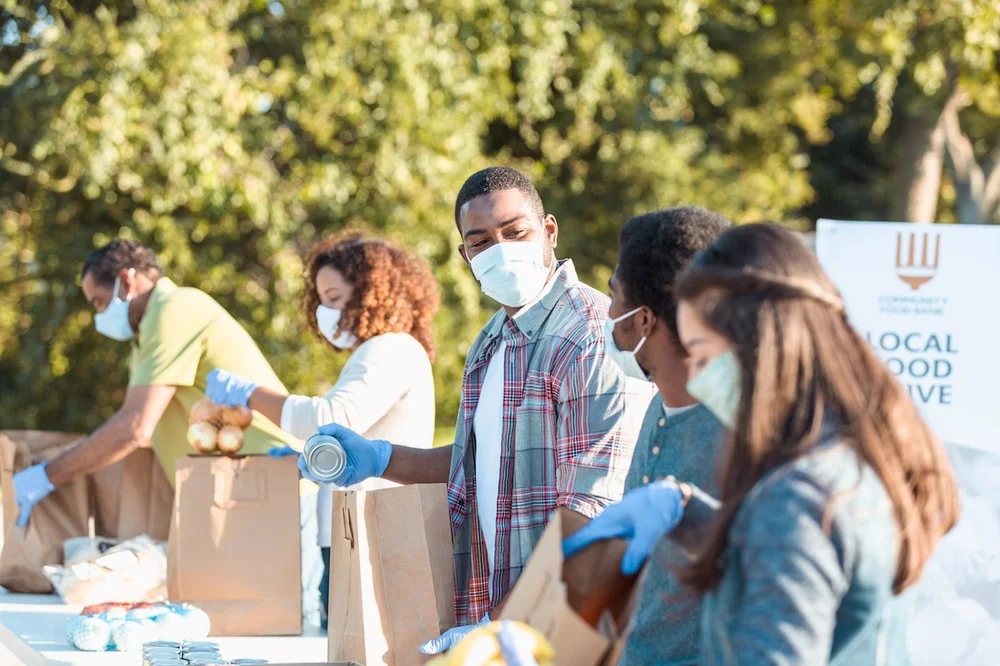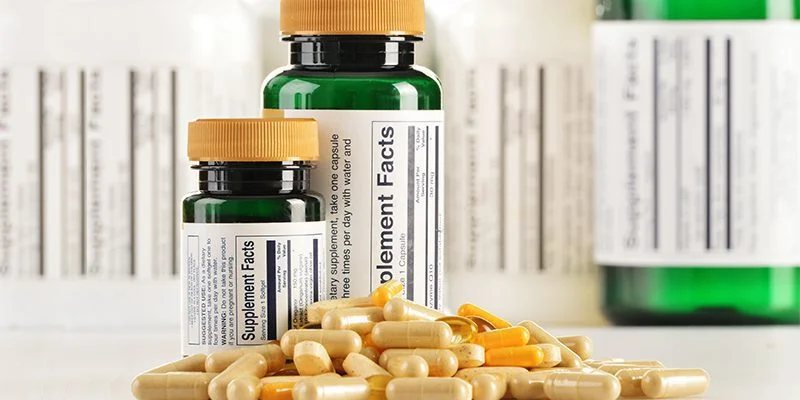5 Simple Mood-Boosting Acts of Service: Feel Happier by Helping Others
On some basic level, we all know that helping others helps us feel good too.
Research now confirms this notion. In fact, studies show that kind acts to help others can activate the brain’s pleasure centers and trigger the release of feel-good endorphins, hormones, and neurotransmitters, such as oxytocin, dopamine, and serotonin, to help boost your mood.
Helping others literally affects your brain chemistry!
Altruistic acts do far more than just boost your mood, though. Helping others comes with many potential health benefits, including:
- the promotion of healthy blood pressure levels
- increased self-esteem
- reduced stress
- longer life
- greater happiness and satisfaction
Once you understand how helping others can benefit you, donating or volunteering may become an essential part of your wellness routine, along with quality sleep, a brain-healthy diet, nutritional supplements, and exercise.
Here are some proven ways to make a difference and improve your health at the same time…
5 Simple Ways to Boost Your Happiness by Helping Others

1. Volunteer
If you volunteer on a regular basis, you may experience a number of health improvements.
A study conducted by Washington University’s Center for Social Development evaluated volunteer tutors over age 55 who worked with elementary school kids through an organization called Experience Corps. The results were remarkable.
The tutors reported improvements in mental health, physical functioning (mobility, stamina, and flexibility), and overall health. They also developed larger social networks and better self-esteem as a result of their participation.
Health benefits apply to young people too. A study found that high school students who volunteered once a week for two months ended up with healthier LDL cholesterol levels and a lower average BMI than a control group of students that didn’t volunteer. Interestingly, researchers believe that the volunteers’ improved mood and self-esteem helped explain their physical improvements.
So, jump into this virtual circle and volunteer. It’s better to start small than overcommit. Also, do it consistently to get the most benefit. Check out Volunteer Match for opportunities.
2. Help The Less Fortunate
When you help others who are less fortunate through difficult times, a feeling of gratitude can result, which promotes a more positive outlook.
Mental health experts have noted that if you occasionally experience envy or a “grass is greener” feeling, assisting those who are struggling may give you a new perspective and help you feel more grateful for what you have.
In general, grateful people sleep better, experience fewer aches and pains, and report feeling healthier than other people. Gratitude helps reduce a multitude of negative emotions, including envy, resentment, frustration, and regret – and it promotes feelings of happiness, well-being, and greater self-esteem.
The Global One Foundation, a nonprofit that works to permanently uplift the lives of children living in extreme poverty, aptly describes helping others as a way to “promote a deeper sense of gratitude as we recognize more of what is already a blessing/gift/positive in our life.”
3. Help the Environment
Volunteering doesn’t always mean helping other people. Several studies show that volunteering to help or beautify the environment can provide a number of health benefits, especially to those at midlife and older.
One population-based study examined epidemiological evidence over a 20-year period and found that midlife, environment-related volunteering had significant correlations with physical activity, self-reported health, and a more positive outlook.
Since older people often suffer from social isolation, low mood, and lack of activity, organized activities associated with caring for public green spaces have proven to be beneficial. One study showed that participants’ level of physical activity, subjective life satisfaction, and positive feelings were significantly increased by this type of volunteering.
You’re never too young or too old to make a difference, so roll up your sleeves and volunteer with an environmental group!
4. Random Acts of Kindness
Acts of kindness and service to others can decrease stress and boost your mood because, like with exercise, the process makes the body release endorphins, which are the feel-good chemicals that promote a happier state of mind.
There’s a close association between kindness and happiness in everyday life. In general, kind people experience more happiness. People who regularly perform acts of kindness also have greater life satisfaction.
Some people have reported feeling greater happiness just by thinking of doing an act of kindness!
Sprinkle kindness into your day. Start by paying attention to people around you and how you can make their lives easier. Hold a door open for someone. Let a car move in front of you when you’re on the road. Call a friend to see how they’re doing. No kind gesture is too small.

Did you know that giving your unused items or money to charities or other people can tangibly improve your health?
Some research indicates that giving financial donations to charities you care about promotes healthy blood pressure levels, even when controlling for factors like income, wealth, age, and exercise. The greater the connection participants feel to the cause, the healthier the blood pressure levels.
Of course, giving away unused items is great for mental focus. Decluttering and organizing can directly lead to improving your attention span and focus by giving you a refreshed mental space.
And who doesn’t want that?
Important Caveat
Regardless of how you choose to help, remember that some evidence shows the health benefits of kind acts are correlated with a genuine desire to help others. Nature rewards only a true motive to help!
At BrainMD, we’re dedicated to providing the highest purity nutrients to improve your physical health and overall well-being. For more information about our full list of brain healthy supplements, please visit us at BrainMD.
- Here Are Some of the Best Tension Release Exercises to Help You Feel Your Best! - April 17, 2024
- Foodscaping: How to Grow Healthy Foods In Your Own Garden! - April 12, 2024
- Eat Your Fruits and Veggies (Don’t Drink Them) - March 29, 2024



